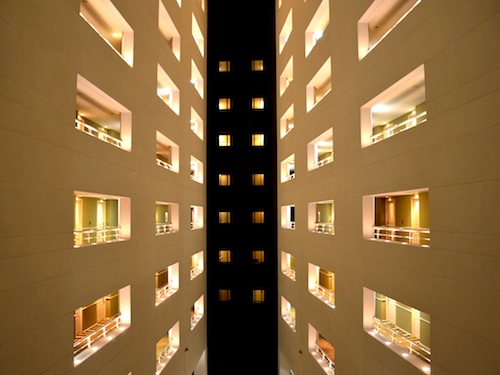RALEIGH, N.C., (April 5, 2013) – FMI, the largest provider of management consulting and investment banking services* to the engineering and construction industry released today its Q1-2013 Construction Outlook. Although the strength of individual markets is shifting, the forecast for total construction-put-in-place for 2013 continues to show an increase of 8% over 2012 levels. The $918,897 million estimate is a solid improvement, but FMI does not expect to return to the days of annual construction above the trillion-dollar mark until 2015.
The star of the show is residential buildings with a 23% rise in single-family buildings. While much of business sector is still in wait-and-see mode, some industries are breaking the mold and planning for growth. Commercial, lodging and office construction are starting to pick up.
The rich shale regions of the country are seeing a lot of construction activity. With oil and gas exploration booming, these regions are in need of housing, as well as the construction of roads, rail and pipelines to move the product from the fields to refining and distribution sites.
In addition, the potential for greater energy independence and lower energy prices is helping to make the U.S. more competitive in the global market and enticing more manufacturing to relocate in the U.S.
Residential Construction — Single-family housing put in place grew 19% in 2012, and FMI expects another 23% growth to reach $161 billion by the end of 2013. Multifamily construction improved a whopping 47% in 2012, with FMI looking for another 31% in 2013.
Nonresidential Construction Trends and Forecasts by Sector:
Lodging — After three years of steep declines, the market for lodging construction came back a strong 25% in 2012 and FMI expects another 10% growth in construction put in place for 2013.
Office — Office construction is finally showing a solid but slow turnaround with 5% growth in 2012 and another 5% increase expected in 2013.
Commercial — Commercial construction is the third largest nonresidential construction market behind education construction and manufacturing construction. That is why it is good to see that it continues into its third year of good growth, moving up 8% in 2012 and looking for another 7% to reach $50.3 billion in 2013.
Health care — Health care construction was moderate in 2012, growing only 3%, but FMI expects it to pick up in 2013 to 8% to $44.2 billion construction put in place for the year.
Manufacturing — Manufacturing construction increased 17% in 2012. It will continue with another 6% increase for 2013 through 2014.
Power-related — Construction for the power market grew 9% in 2012 and will continue to grow between 8% and 9% through 2017.
Related Stories
MFPRO+ News | Jun 3, 2024
Seattle mayor wants to scale back energy code to spur more housing construction
Seattle’s mayor recently proposed that the city scale back a scheduled revamping of its building energy code to help boost housing production. The proposal would halt an update to the city’s multifamily and commercial building energy code that is scheduled to take effect later this year.
Mass Timber | May 31, 2024
Mass timber a big part of Western Washington University’s net-zero ambitions
Western Washington University, in Bellingham, Wash., 90 miles from Seattle, is in the process of expanding its ABET-accredited programs for electrical engineering, computer engineering and science, and energy science. As part of that process, the university is building Kaiser Borsari Hall, the 54,000-sf new home for those academic disciplines that will include teaching labs, research labs, classrooms, collaborative spaces, and administrative offices.
Construction Costs | May 31, 2024
Despite challenges, 2024 construction material prices continue to stabilize
Gordian’s Q2 2024 Quarterly Construction Cost Insights Report indicates that supply chain issues notwithstanding, many commodities are exhibiting price normalization.
University Buildings | May 30, 2024
Washington University School of Medicine opens one of the world’s largest neuroscience research buildings
In St. Louis’ Cortex Innovation District, Washington University School of Medicine recently opened its new Jeffrey T. Fort Neuroscience Research Building. Designed by CannonDesign and Perkins&Will, the 11-story, 609,000-sf facility is one of the largest neuroscience buildings in the world.
Architects | May 30, 2024
AE firm Goodwyn Mills Cawood merges with Southland Engineering
Architecture and engineering firm Goodwyn Mills Cawood (GMC) is further expanding its services through a strategic merger with engineering firm Southland Engineering in Cartersville, Ga.
K-12 Schools | May 30, 2024
Inclusive design strategies to transform learning spaces
Students with disabilities and those experiencing mental health and behavioral conditions represent a group of the most vulnerable students at risk for failing to connect educationally and socially. Educators and school districts are struggling to accommodate all of these nuanced and, at times, overlapping conditions.
MFPRO+ New Projects | May 29, 2024
Two San Francisco multifamily high rises install onsite water recycling systems
Two high-rise apartment buildings in San Francisco have installed onsite water recycling systems that will reuse a total of 3.9 million gallons of wastewater annually. The recycled water will be used for toilet flushing, cooling towers, and landscape irrigation to significantly reduce water usage in both buildings.
Healthcare Facilities | May 28, 2024
Healthcare design: How to improve the parking experience for patients and families
Parking is likely a patient’s—and their families—first and last touch with a healthcare facility. As such, the arrival and departure parking experience can have a profound impact on their experience with the healthcare facility, writes Beth Bryan, PE, PTOE, PTP, STP2, Principal, Project Manager, Walter P Moore.
Urban Planning | May 28, 2024
‘Flowing’ design emphasizes interaction at Bellevue, Wash., development
The three-tower 1,030,000-sf office and retail development designed by Graphite Design Group in collaboration with Compton Design Office for Vulcan Real Estate is attracting some of the world’s largest names in tech and hospitality.
MFPRO+ News | May 28, 2024
ENERGY STAR NextGen Certification for New Homes and Apartments launched
The U.S. Environmental Protection Agency recently launched ENERGY STAR NextGen Certified Homes and Apartments, a voluntary certification program for new residential buildings. The program will increase national energy and emissions savings by accelerating the building industry’s adoption of advanced, energy-efficient technologies, according to an EPA news release.

















